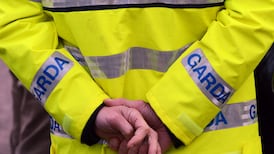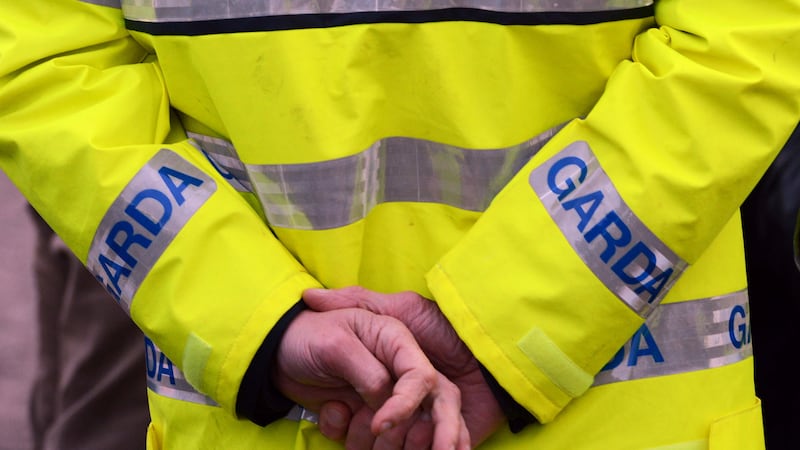A senior Garda has said the force will study a blueprint for a "radical" human rights reform of the force which way published by the Irish Council for Civil Liberties on Friday.
A controversial operation in which masked gardaí were at the scene of an property repossession in Dublin showed, "yet again", the force has "never fully embraced human rights standards and values", ICCL director Liam Herrick said.
The ICCL commissioned the report from former human rights advisor to the Policing Board of Northern Ireland, Alyson Kilpatrick because, up to this point, An Garda Síochána "has never fully embraced human rights standards and values", Mr Herrick said.
Reacting to the report, Garda Deputy Commissioner Policing and Security John Twomey said the force will study the recommendations.
Proposals on how the Garda can strengthen its delivery of a human rights based policing and security service “are always welcome”, he said.
The force has, and is, undertaking various measures to ensure it provides such a service and the new Garda Commissioner has stressed the importance of delivering an ethical policing and security service with a focus on “protecting the vulnerable”, he said.
The new measures include training all members of the force and its staff in the Garda Code of Ethics of which human rights “is a central plank”, he said. A strategic human rights advisory committee is a being re-established and its tasks include developing a human rights framework document.
The force’s public order incident command policy had been developed based on best international practice, he added
The ICCL report stresses a “will to reform” must be present at all levels of the force and its recommendations include a complete overhaul of training; making the force more diverse and representative of the Irish population; inspections of all places of detention; publication of policies and statistics where possible; and management restructuring.
Ms Kilpatrick said the Police Service of Northern Ireland "is now regarded as a worldwide leading example of how transformative a rights-based approach is".
Human-rights based reform “is not easy, but it is worth it” and the Garda “must commit itself entirely to this worthwhile process for the sake of the people of Ireland.”
Her report highlighted a number of problems with the use of force by gardaí.
It says gardaí are “likely” use pepper spray at a higher rate than the Metropolitan Police or the PSNI but that was difficult to be categoric about this, given the lack of statistics available.
Ms Kilpatrick stressed she was not criticising individual gardaí and said the problem is that structures within the force are not human rights compliant.
There is, for example, no independent oversight mechanism that is human rights compliant for people in detention while the force itself recognises that attitudes of some gardaí to Travellers and Roma range from “very poor to downright hostility”.
Mr Herrick said this is “a pivotal moment” for policing in Ireland.
“This report makes the compelling argument that taking human rights seriously at all levels of Irish policing will have profound benefits for gardaí and for the communities they serve.”
Noting the imminent publication of the report of the Commission on the Future of Policing, he said there will be a comprehensive Garda reform process arising from the Commission.
"This ICCL report provides a blueprint for how to deliver radical overhaul of Irish policing around human rights principles, drawing on the experience of the transformation of policing culture and practice in Northern Ireland. "
“While of course the gardaí do not have all of the problems that have historically beset policing in Northern Ireland, there are many practical lessons we can learn from the experience there.”
In her analysis of current Garda policy and practice, Ms Kilpatrick argues there is a serious gap in human rights compliance in several areas, including policing of protest, investigation of hate crime, stop-and-search practices, State security, and treatment of people in custody.
There are “particular problems” with the oversight and accountability mechanisms of State security and the Garda should develop, and publish, written policy on all covert activity, she recommends.
Where there cannot be publication for security reasons, she recommends these policies should be made accessible to a human rights legal expert in the Policing Authority.
The report recommends recording all circumstances of deployments of weapons or use of force, together with an explanation of the circumstances, location of use, outcome and the identity of the garda or gardaí involved. It recommends sharing this information with the Policing Authority and publishing all related statistics.
A correctly implemented rights-based approach will not only protect the people that the gardaí come into contact with but will protect gardaí themselves “by positively transforming policy, practice and philosophy”, Ms Kilpatrick said.













